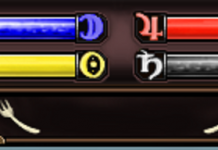Whenever someone we love dies — in old age or tragically before their prime — our hearts cannot but anguish with those who are suffering soul-tearing losses.
Some children have lost one or both parents. Husbands and wives have been robbed of loving mates. Others will never see brother or sister again.
To describe separations like these as painful is an egregious understatement. The caring soul is wholly sympathetic to the tears of damaged family members.
It is most difficult to be critical of sincere people in a time of such distress. But we must, with genuine compassion, call attention to a glaring error that has manifested itself repeatedly — and occasionally on the part of Christians who ought to know better.
Not infrequently, the public has been encouraged to “pray for those whose lives were lost, and for their families.”
For those grieving families — yes. Certainly so.
For the dead? No.
Is this a heartless admonition? It is not. It is spiritual reality. No one should entertain the illusion that someone may be able to pray for him, effecting some beneficial result, after he is dead.
Table of contents
Praying For the Dead
While it is natural to have the inclination to pray in times of acute distress, the only thing one really knows about valid prayer is that which is revealed in the Bible. The Scriptures constitute the only legitimate prayer manual.
And there is ample evidence in the sacred volume that prayers for the dead are not only futile, but that the practice is antagonistic to certain aspects of divine truth — in spite of the fact that this pagan practice is common in certain circles of “Christendom.”
For example, Roman Catholic theology allows for prayers both to the dead and on behalf of them. But reflect upon the following points.
Admission: No Biblical Authority
Even Catholic authorities concede that there is no explicit authorization for prayers on behalf of the dead in the sixty-six books of canonical Scripture.
Roman authorities appeal to the Apocrypha (2 Macabees 12:46), church tradition (late second century and onward), the decree of the Council of Trent (Session xxv), etc. But there is no valid biblical defense to be made for the practice (Attwater, 137). It is only from a few passages, not relevant to the issue, that unwarranted inferences are drawn.
No Need for the Righteous Dead
The Scriptures teach that those who have yielded to the Savior’s will (Heb. 5:8-9) enter directly and immediately into the presence of the Lord (Lk. 23:43; Phil. 1:23; 2 Cor. 5:6,8).
What need, then, do they have for the prayers of people upon the earth?
Death Ends Opportunity to Prepare
In the parable of the virgins (Mt. 25:1ff), there is the clear lesson that after those virgins went to sleep signifying death (cf. Dan. 12:2; 1 Thes. 4:13ff), there was no further opportunity for preparation (the “door was shut” Mt. 25:10).
The lesson then is taught that only those who had made adequate, personal preparation would meet the bridegroom in a prepared state. The implications of this illustration are firmly opposed to the notion of praying for the dead.
Death Involves a Permanent Separation
When Jesus related the details regarding the selfish rich man, and the righteous beggar, Lazarus, (Lk. 16:19ff), he affirmed that a “great gulf” stood between the abode of the unrighteous and the righteous (Lk. 16:26).
Jesus stated that this gulf is permanently fixed (this is the force of the perfect tense verb), and there is no crossing from one side to the other. How, therefore, could prayers from the living alter the destiny of the lost?
Dead Initiates One’s Final Judgment
According to Hebrews 9:27, “t is appointed to men once to die, and after this comes judgment.” There is no indication that a change in one’s spiritual condition can be made following his death — either by himself or through the efforts of others.
Prayer Useless for Those Who Die in Rebellion
The apostle John prohibited prayer for those who are committing “sin unto death” (1 Jn. 5:16), meaning those who are in constant rebellion, sin continued without seeking relief in conformity to God’s law of pardon.
If such is the case with the living who are in persistent rebellion, how could prayer for those who are dead already avail since there is no post-mortem plan of salvation?
Conclusion
And so, while we truly sympathize with those who have lost dear ones, we would do well to be reminded of the biblical admonition:
Behold, now is the acceptable time; behold, now is the day of salvation” (2 Cor. 6:2).
While this language, in context, refers to the gospel age as a whole, the phraseology is not inappropriate for the individual who, in an unprepared condition, faces that inevitable enemy — death (Rom. 5:12; 1 Cor. 15:26; Heb. 9:27).
www.christiancourier.com
Therefore, we see panikhidas and prayer at home for the dead are beneficial for them, as are good deeds done in their memory, such as alms or contributions to the church. But especially beneficial for them is commemoration at the Divine Liturgy. There have been many appearances of the dead and other occurrences which confirm how beneficial is the commemoration of the dead. Many who died in repentance, but who were unable to manifest this while they were alive, have been freed from tortures and have obtained repose.
How important commemoration at the Liturgy is may be seen in the following occurrence: Before the uncovering of the relics of St. Theodosius of Chernigov (1896), the priest-monk (the renowned Starets Alexis of Goloseyevsky Hermitage, of the Kiev-Caves Lavra, who died in 1916) who was conducting the re-vesting of the relics, becoming weary while sitting by the relics, dozed off and saw before him the Saint, who told him: “I thank you for laboring me. I beg you also, when you will serve the Liturgy, to commemorate my parents”—and be gave their names (Priest Nikita and Maria).** “How can you, O Saint, ask my prayers, when you yourself stand at the heavenly Throne and grant to people God’s mercy?” the priest-monk asked. “Yes, that is true,” replied St. Theodosius, “but the offering at the Liturgy is more powerful than my prayer.”
Therefore, we see panikhidas and prayer at home for the dead are beneficial for them, as are good deeds done in their memory, such as alms or contributions to the church. But especially beneficial for them is commemoration at the Divine Liturgy. There have been many appearances of the dead and other occurrences which confirm how beneficial is the commemoration of the dead. Many who died in repentance, but who were unable to manifest this while they were alive, have been freed from tortures and have obtained repose. In the Church, prayers are ever offered for the repose of the dead, and on the day of the Descent of the Holy Spirit, in the kneeling prayers at vespers, there is even a special petition “for those in hell.”
St. Gregory the Great, in answering in his Dialogues the question, “Is there anything at all that can possibly benefit souls after death?” teaches: “The Holy Sacrifice of Christ, our saving Victim, brings great benefits to souls even after death, provided their sins (are such as) can be pardoned in the life to come. For this reason the souls of the dead sometimes beg to have Liturgies offered for them … The safer course, naturally, is to do for ourselves during life what we hope others will do for us after death. It is better to make one’s exit a free man than to seek liberty after one is in chains. We should, therefore, despise this world with all our hearts as though its glory were already spent, and offer our sacrifice of tears to God each day as we immolate His sacred Flesh and Blood. This Sacrifice alone has the power of saving the soul from eternal death, for it presents to us mystically the death of the Only-begotten Son” (Dialogues IV: 57, 60, pp. 266, 272-3).
St. Gregory gives several examples of the dead appearing to the living and asking for or thanking them for the celebration of the Liturgy for their repose; once, also, a captive whom his wife believed dead and for whom she had the Liturgy celebrated on certain days, returned from captivity and told her how he had been released from his chains on some days—the very days when the Liturgy had been offered for him. (Dialogues IV: 57, 59, pp. 267, 270).
Protestant theologians find the Church’s prayer for the dead to be somehow incompatible with the necessity of finding salvation first of all in this life: “If you can be saved by the Church after death, then why bother to struggle or find faith in this Life? Let us eat, drink, and be merry…” Of course, no one holding such a philosophy has ever attained salvation by the Church’s prayers, and it is evident that such an argument is quite artificial and even hypocritical. The Church’s prayer cannot save anyone who does not wish salvation, or who never offered any struggle for it himself during his lifetime. In a sense, one might say that the prayer of the Church or of individual Christians for a dead person is but another result of that person’s life: he would not be prayed for unless he had done something during his lifetime to inspire such prayer after his death.
St. Mark of Ephesus also discusses this question of the Church’s prayer for the dead and the improvement it brings in their state, citing the example of the prayer of St. Gregory the Dialogist for the Roman Emperor Trajan—a prayer inspired by a good deed of this pagan Emperor.
**These names had been unknown before this vision. Several years after the canonization, St. Theodosius’ own Book of Commemoration was found in the monastery where he had once been Abbot, which confirmed these names and corroborated the vision. See the Life of Elder Alexis in Pravoslavny Blagovestnik, San Francisco, 1967, No. I (in Russian).
Excerpt from The Soul after Death by Fr. Seraphim Rose
Do you see a mistake in the text? Highlight it and click: Ctrl + Enter
www.pravmir.com
Catholics and Orthodox do not subscribe to the doctrine of Sola Scriptura, which is the doctrine that says that the only source of authoritative teaching is Sacred Scripture. Instead, we rely on Apostolic Succession to show that the doctrines we hold onto are those that the Apostles taught, by tracing the teachers and the teaching in an unbroken chain back to the Apostolic era. Regarding the specific issue of praying for the Dead, we have both the Sacramentary of Serapion and a Homily from St. John Chrysostom attesting to the antiquity of the practice already in the Fourth Century.
However, since the question asks for specifically Scriptural support for prayers for the Dead, the most important passage is the end of 2nd Maccabees 12:
39 And upon the day following, as the use had been, Judas and his company came to take up the bodies of them that were slain, and to bury them with their kinsmen in their fathers’ graves.
40 Now under the coats of every one that was slain they found things consecrated to the idols of the Jamnites, which is forbidden the Jews by the law. Then every man saw that this was the cause wherefore they were slain.
41 All men therefore praising the Lord, the righteous Judge, who had opened the things that were hid,
42 Betook themselves unto prayer, and besought him that the sin committed might wholly be put out of remembrance. Besides, that noble Judas exhorted the people to keep themselves from sin, forsomuch as they saw before their eyes the things that came to pass for the sins of those that were slain.
43 And when he had made a gathering throughout the company to the sum of two thousand drachms of silver, he sent it to Jerusalem to offer a sin offering, doing therein very well and honestly, in that he was mindful of the resurrection:
44 For if he had not hoped that they that were slain should have risen again, it had been superfluous and vain to pray for the dead.
45 And also in that he perceived that there was great favour laid up for those that died godly, it was an holy and good thought. Whereupon he made a reconciliation for the dead, that they might be delivered from sin.
Here, part of Judas Maccabeus’s army died fighting the Gorgias, military governor of Idumea. It was found that those who died had kept Jamnite idols, which is a sin. However, they had fought for Israel and to defend their homeland, so the people prayed that the Lord might forgive them this offense so that they might be raised when the Resurrection came. As verse 44 says, “for if he had not hoped that they that were slain should have risen again, it had been superfluous and vain to pray for the dead.” But because he hoped for the Resurrection, it is not vain to pray for them.
Of course, your argument is that prayer for the dead is vain because they are all asleep. In fact, the doctrine of Mortalism (sometimes known as “soul sleep”) is postulated exactly to justify the vanity of praying for the dead, or of intercessory prayer by the dead. But there are passages in Scripture where we see the dead specifically not sleeping. Particularly, in the passage of the Transfiguration (Mt 17:1–13; Mk 9:2–13; Lk 9:28–36) Moses and Elijah are standing together with Jesus and talking.
Mt 17:3 And, behold, there appeared unto them Moses and Elias talking with him.
Mk 9:4 And there appeared unto them Elias with Moses: and they were talking with Jesus.
Lk 9:30–31 And, behold, there talked with him two men, which were Moses and Elias: 31 Who appeared in glory, and spake of his decease which he should accomplish at Jerusalem.
Also, in the parable of the Rich Man and Lazarus (Lk 16:19–31), the deceased are shown awake and concerned about things on Earth:
23 And in hell he lift up his eyes, being in torments, and seeth Abraham afar off, and Lazarus in his bosom. 24 And he cried and said, Father Abraham, have mercy on me, and send Lazarus, that he may dip the tip of his finger in water, and cool my tongue; for I am tormented in this flame.
In Revelation, too, nowhere are the dead in Christ described as sleeping. Particularly, the twenty-four Elders in Revelation 4:4.10–11:
4 And round about the throne four and twenty seats: and upon the seats I saw four and twenty elders sitting, clothed in white raiment; and they had on their heads crowns of gold.
10 The four and twenty elders fall down before him that sat on the throne, and worship him that liveth for ever and ever, and cast their crowns before the throne, saying,
11 Thou art worthy, O Lord, to receive glory and honour and power: for thou hast created all things, and for thy pleasure they are and were created.
In the Psalms, a few references to the state of souls after death, for example:
Ps 16(17):9–11 Therefore my heart is glad, and my glory rejoiceth: my flesh also shall rest in hope. 10 For thou wilt not leave my soul in hell; neither wilt thou suffer thine Holy One to see corruption. 11 Thou wilt shew me the path of life: in thy presence fulness of joy; at thy right hand pleasures for evermore.
In conclusion, there are many different positions on the nature of the soul and their destination after death in the Old Testament; and in the New Testament, the wide use of the verb κοιμάω “to sleep” to stand for θνῄσκω “to die” causes a misunderstanding (which unfortunately Luther was party to, which caused it to become a widely-held opinion among Protestants) that death is a literal sleep. This was not taught by the primitive Christian communities, as any review of the praxis of these communities will attest.
christianity.stackexchange.com













